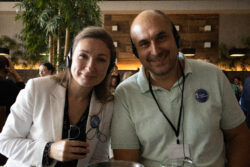
Záverečná konferencia k projektu
04. 10. 2023
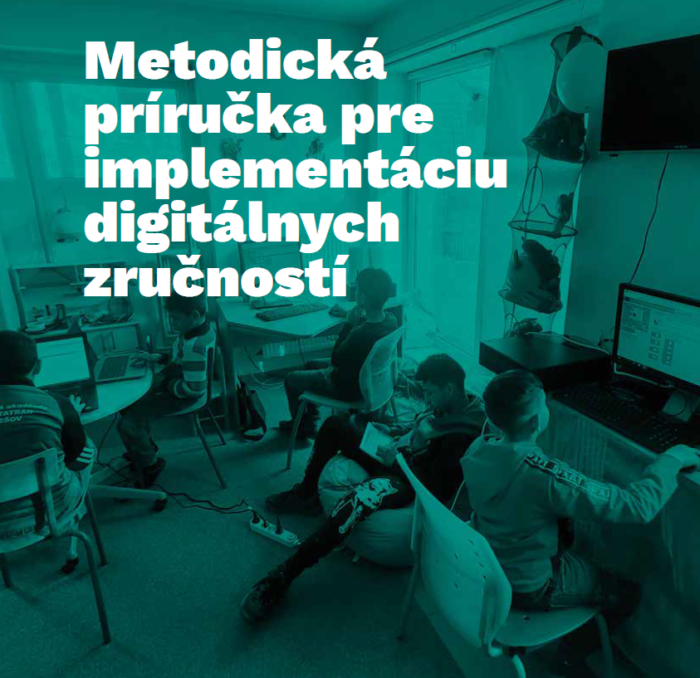
However, there is still a segment of the population that does not possess these skills and is disqualified by this handicap from providing for even basic needs. These are mostly older people, people with less education, or young people from socially disadvantaged backgrounds. Roma children who come from socially marginalised and less stimulating environments are a separate category. They enter the school system with numerous disadvantages. For example, after the outbreak of the pandemic, many of them were left out of education simply because they had limited access to IT facilities, to the Internet, lacked digital skills or lacked support in the home environment.
In our community centres, we have been working with these children for a long time and provide them with a wide range of educational activities, such as non-formal education, mentoring and career counselling. We also do activities to develop digital skills, and it is these that we have decided to focus more attention on, as a response to their disadvantage due to less access to technology and the internet. Support from Norwegian grants has helped us to do this. We hired a trainer who started coming to our community centres on a weekly basis in September 2022 to educate the children in this area.
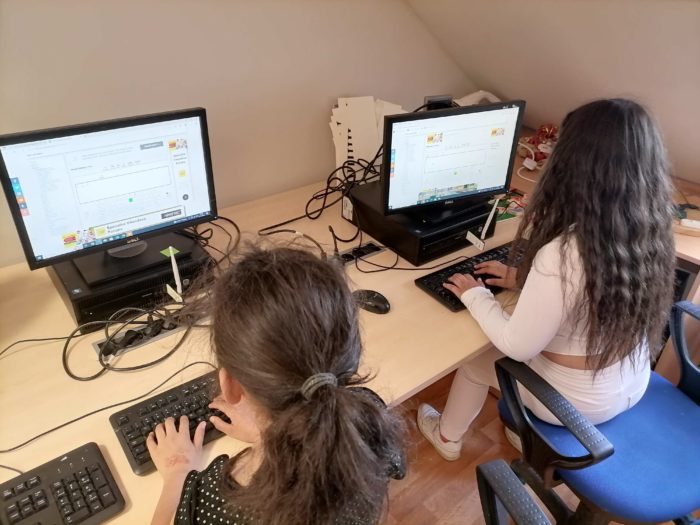
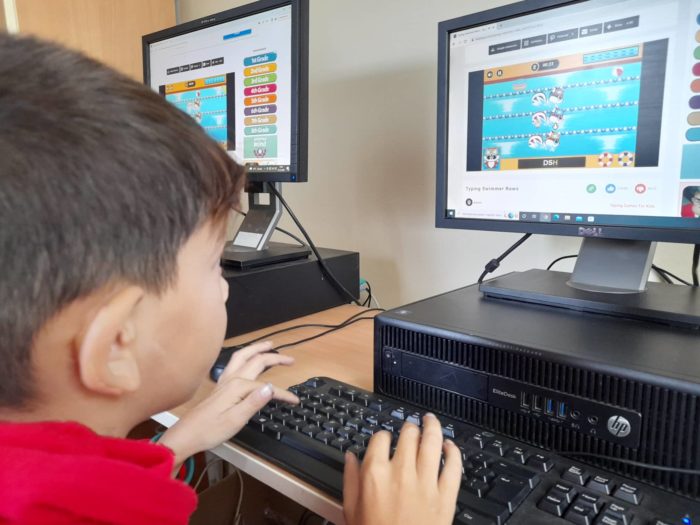
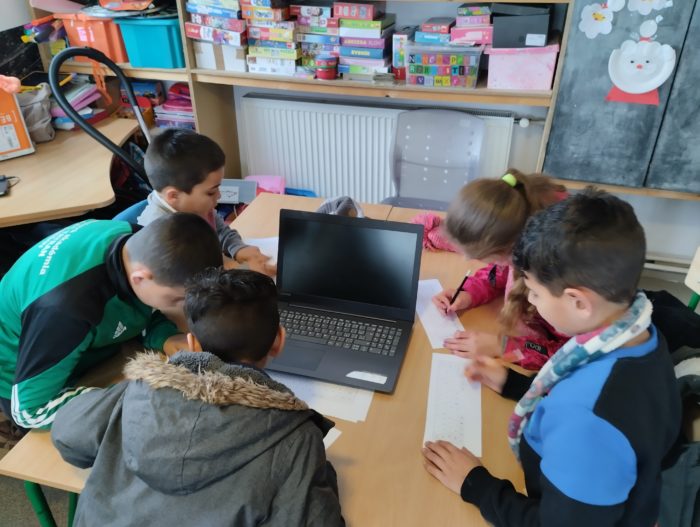
In addition, we have prepared a methodological guide for the development of digital skills in the environment of marginalized Roma communities, which is available to the general public. We tested the individual procedures from the manual directly during the lessons, so we received immediate feedback. The training covered by the digital trainer has been very successful, the children were and still are interested in the activities and are making progress, so we are looking for resources to continue the set format after the end of the project.
Since children from marginalized Roma communities often have limited, often no access to technology and the availability of telecommunication networks, the ideal solution to educate them in digital skills is the possibility of using technology in community centers, which represent a great potential for their education. Our methodological guide also states that the new educational concepts of the Ministry of Education, which emphasise the understanding of the basic principles, concepts and practices of computer science, should be fully applied in the education of these children.
Based on our experience of working with children from the MRK, we know that it is necessary to start by supporting and the development of reading literacy and at the same time with the development of mathematical and computer literacy. It is very important to make sure that children understand the instructions, information, names and concepts given. At the same time, it is important to repeat the concepts, write them down and then make sure that the children understand their meaning. If children do not understand the meaning of words, this is mainly due to a language barrier, as most of them speak their mother tongue in the home environment. It is therefore advisable to use the Romani language, if possible, and to link it with Slovak. If the people working in the community centre have at least some understanding of the Romani language, they can better convey information to the children and understand the meaning of the words.
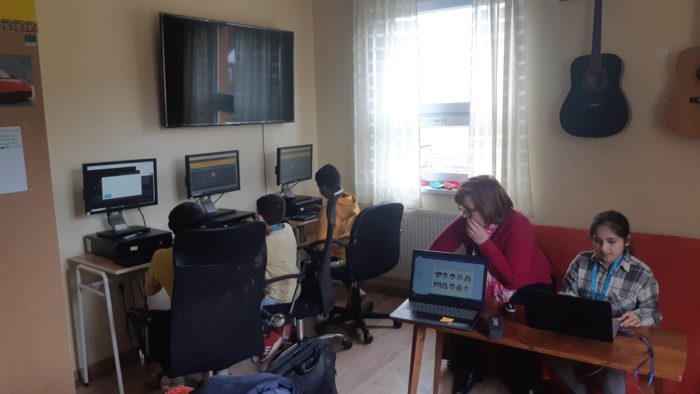
The absence of home preparation for lessons must also be taken into account in the education of these children. Worksheets that children can take home and use to revise or test their new knowledge have proved very useful. The worksheets must be interesting and motivating at first sight, as must the activities for children in the community centres. When teaching digital skills, it is essential to have a plan, a system, selected topics and material and technical support. It is important to maintain didactic principles such as the principles of sequencing, illustration, systematicity and an individual approach.
The methodological guide provides material divided into the following three groups: the computer and its parts and how to work with them, the Internet, its benefits and risks, and using the computer for work and play. It is intended to help and train workers in community centre settings to learn digital skills and to create a space for them to acquire them. The manual includes worksheets, presentations and various web links, which are primarily intended to inspire and focus the attention of trainers in community centres. They are a kind of guidelines and instructions on how to navigate in the Internet environment so that we also teach children that they can find all the sources of information there.
Can you summarise the baseline situation and explain why such a guide is needed?
I mentioned the reason in the manual itself. Today’s „electronic“ age puts us in a situation where we can’t even imagine life without computers. The more and better we are able to work with them, the more we realise how much they help us and how many other possibilities there are for using them. Nowadays, it is perhaps almost embarrassing to admit that I cannot use a computer for my needs. But there is still a group of people in society who really don’t know. This group often includes (but is not limited to) children who come to community centres and take advantage of the opportunity to work with the computer there. The idea of making the most of this situation for the benefit of these children is a great one and has been met with a very positive response. Thus, the idea of creating a methodological manual was born, which would be a kind of help for the workers of community centres with young people in the field of acquiring digital skills.
How did you go about writing it?
For the writing, I worked closely with the Education Program Manager at People in Need, Anka Dzurusova, with whom I consulted on the writing style. I then selected the topics that should be included and in all this I took into account the target group – that is, children coming to the community centres. On the basis of my experience of working with such children from low stimulus backgrounds, I selected suitable and appropriate topics and tried to process them in such a way that they would be as comprehensible as possible for the children and at the same time as comprehensible as possible for the staff of the community centres who work with these children.
Who is it primarily for and how should community centres work with it?
The guide is primarily intended for children from marginalised Roma communities who do not always have access to a computer, tablet or internet at home and therefore use this option in community centres. However, the workers there may not be exceptionally skilled in this area either, which is why the manual is written in a simple style so that everyone who reads it understands its meaning and is able to pass on digital skills. In testing each topic, we found that they do not have to be presented in the order in which they are listed and that most topics can be covered several times and children will find new information and stimuli each time. It can also be used for skills acquisition in literacy and other areas that are part of the national curriculum.
The methodological guide was developed within the project Developing Skills and Career Guidance for Social Inclusion. The project received a grant from Norway in the amount of 169 000 EUR. The project was co-financed in the amount of 25 300 EUR from the state budget of the Slovak Republic.
The aim of the project is to increase the social inclusion of marginalised Roma communities and to build the capacity of local community service providers through proven and best practices and programmes in the field of education and employment.
To find out more about Norwegian grant-funded programmes and projects in Slovakia,
Visit www.norwaygrants.sk.
Array